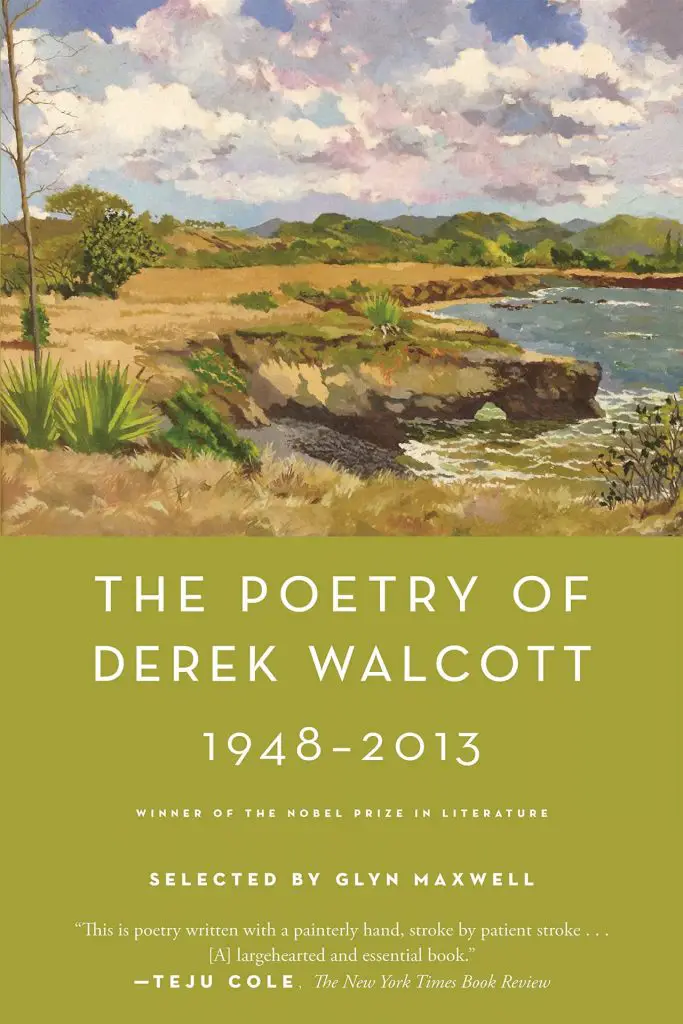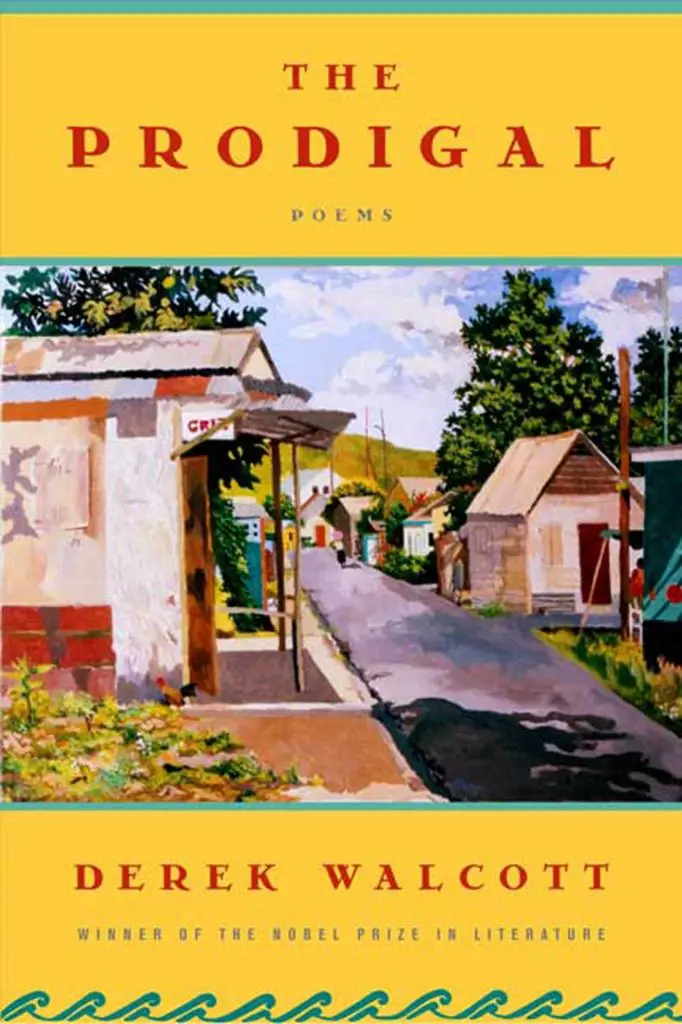Sir Derek Walcott
A Caribbean Literary Giant
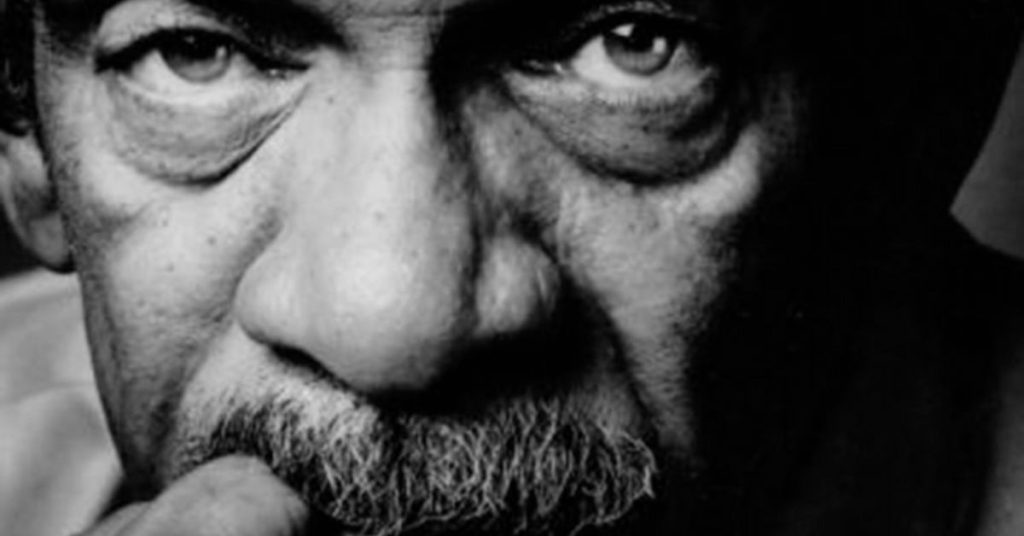
Derek Walcott was a Nobel Prize-winning poet, playwright and painter who left an indelible mark on the world of literature.
He is remembered as one of the most influential Caribbean writers in history, his works exploring themes such as colonialism, identity and memory.
Here we take a look at the life and times of this remarkable man, from his early days to how he earned worldwide recognition for his work.
- Sir Derek Walcott
- The Poet and Playwright-Early Years
- Early Career Achievements
- Literary Works
- Awards And Recognition
- Poetry Style And Themes
- Theater Productions
- Controversies And Criticisms
- Politics And Social Activism
- Personal Life And Relationships
- Later Years And Retirement
- Legacy In Caribbean Literature
- Influence On Global Literature
- Tributes To Walcott’s Memory
- Posthumous Publications
- Controversies Surrounding His Estate
- Impact Of His Work On Future Generations
- Final Thoughts on Derek Walcott
The Poet and Playwright-Early Years

The son of a St. Lucian school teacher, Derek Walcott’s love for writing began at an early age when he wrote stories about his native island and its people.
His passion paid off; by the time he was just 19 years old, he had already published two volumes of poems inspired by Caribbean culture and landscapes; these were met with great acclaim throughout the region.
During his lifetime, Derek Walcott wrote numerous plays that explored themes such as heritage and artistry; these celebrated productions won him many awards including The Noble Prize in Literature in 1992 – making him only the fourth black writer to win this distinguished honour!
As we delve beyond the Nobel Prize: The Life and Times of Derek Walcott, we will explore more about this cultural icon’s journey through life – both professionally and personally – that made him so distinctively memorable.
Early Career Achievements

Derek Walcott, the Nobel Prize-winning poet and playwright, began his career with a bang. In 1959 he founded the Trinidad Theatre Workshop in Port of Spain which produced plays by West Indian writers such as himself.
He wrote several pieces for television while becoming one of the leading figures of Caribbean theatre. His first acclaimed work was the poem ‘In A Green Night’ published in 1962 when he was only 32 years old.
This launched him into literary stardom and garnered international attention from critics who praised his unique writing style that combined English literature with themes heavily influenced by Caribbean culture.
Walcott’s early works were often performed by actors on stage to bring them to life.
His dramatic poetry focused on postcolonialism, identity politics, race relations and colonialism – topics that have shaped his entire body of work spanning over five decades.
As an artist, Walcott is celebrated for breaking boundaries through art, bridging different cultures together with universal truths about humanity.
With this strong foundation set in place, Derek Walcott went on to create some of the most poignant and influential literary works ever written.
Literary Works
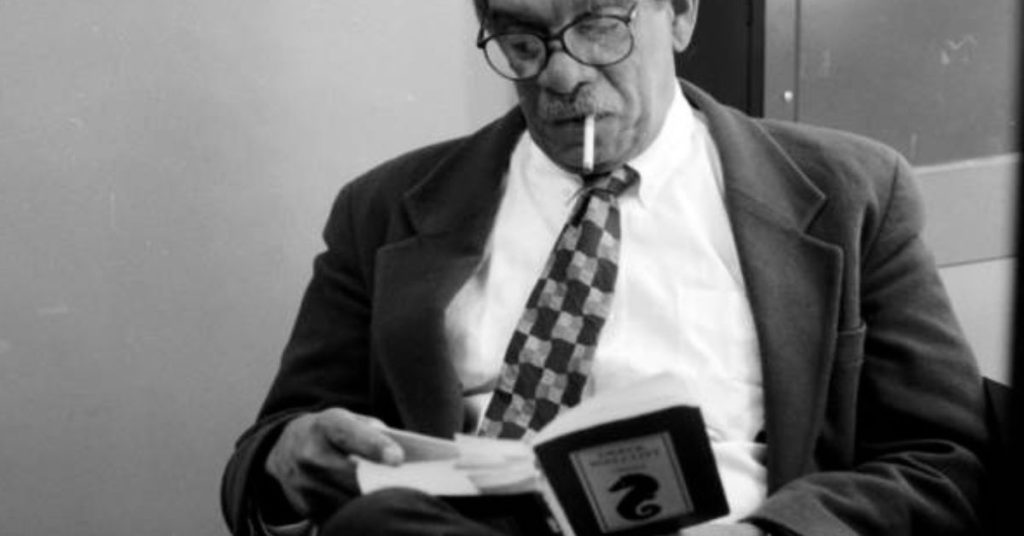
Walcott was a prolific poet, playwright and painter. His work has been published in many magazines and anthologies throughout the world.
He wrote extensively about his native Saint Lucia, incorporating its language, landscape and culture into his works.
The Nobel Prize in Literature committee recognized this mastery of language when they awarded him the prize in 1992.
Walcott’s most famous plays include:
- Pantomime (1958),
- Dream on Monkey Mountain (1970) and
- Ti-Jean and His Brothers (1984).
- He also wrote several collections of poetry including In a Green Night: Poems 1948–1960 (1962),
- Another Life (1973) and Omeros (1990).
- In addition to these achievements, he taught at Boston University for over 30 years.
Awards And Recognition

Derek Walcott’s legacy is far more than a Nobel Prize for Literature. Born in 1930, he was raised in the West Indies and had an identical twin brother who also became a poet.
His prolific career began over six decades ago with his first published poem at just 14 years old.
Walcott won many awards throughout his illustrious career, but the pinnacle of these accolades was the 1992 Nobel Prize For Literature – an honour that put him firmly within the global literary canon.
He dedicated this recognition to all Caribbean writers: “I’d like it to be known as a victory not just for St Lucia or even the English-speaking Caribbean, but for all of us who speak French Creole, Spanish Creole” he said during his acceptance speech.
Walcott was widely celebrated and honoured by fellow authors both locally and abroad, cementing himself as one of the greatest poets of our time.
Poetry Style And Themes
Derek Walcott’s poetry was heavily influenced by the culture and history of his native West Indies.
He often wrote about Caribbean identity, colonialism, slavery, and other experiences that were common to those living in the region.
His poems also featured a unique blend of English and French Creole dialects that he used to express himself.
In addition to this language style, Walcott’s work also embodied many traditional poetic techniques such as allusions, metaphors, and imagery which allowed him to bring depth and complexity to his writing.
Walcott is known for using a variety of themes in his works including migration, religion, love, loss, joy, and despair among others.
No matter what the theme or subject matter may be though, one can always see how closely connected it is with life in the West Indian islands – making these stories universal yet personal at the same time.
By exploring these topics through his own eyes and words Derek Walcott has managed to create some truly remarkable pieces of literature that will continue to resonate with readers for years to come.
Theater Productions
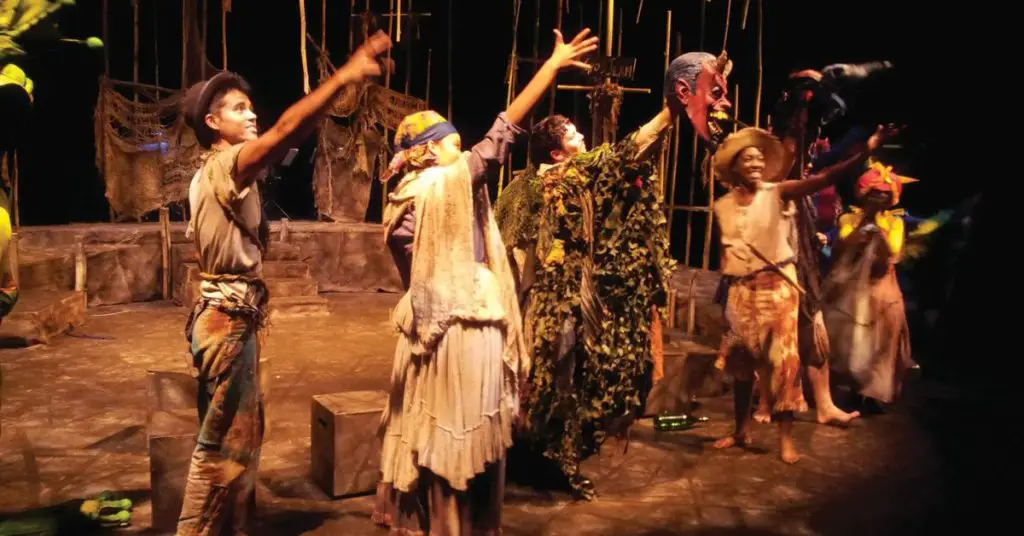
Derek Walcott’s theatrical works have also made waves in the literary world.
In a time when television was still a nascent technology, he managed to capture audiences with live theatre productions of his plays.
He brought Caribbean culture to life on stage while displaying all its complexities through bold, innovative storytelling techniques.
Walcott’s plays often explored issues such as colonialism, racism, identity, sexuality and the power dynamics between men and women that existed within Caribbean society.
His writing provided a unique insight into the lives of people who were struggling against oppression due to race or gender.
He believed that art could be used to spark conversations about difficult topics and create understanding between different cultures.
By creating powerful stories on stage, Walcott gave voice to those whose voices were not being heard.
As his reputation grew so did the success of his theatrical works which continued to challenge social norms and encourage dialogue amongst diverse communities.
The power of these performances can still be felt today leaving an indelible mark on theatre history.
Through them, Walcott opened up new spaces for discussion around Caribbean identity and politics that had previously been unexplored by other writers before him.
It is this legacy that will always remain a testament to his creative genius and passion for exploring complex human experiences with thought-provoking narratives.
Controversies And Criticisms

Derek Walcott’s career was not without its share of controversy.
In the late 90s, he became embroiled in a lawsuit involving allegations of sexual harassment and inappropriate behaviour against female students at Boston University where he taught.
He denied the allegations but eventually agreed to retire from his teaching position over them.
Walcott also had several critics who argued that he should have done more to speak out about political issues affecting his native Saint Lucia and other Caribbean countries.
While some saw him as an elitist intellectual with no real understanding of the everyday struggles of Caribbean people, others viewed him as a voice for change who simply chose to express himself through poetry rather than activism or politics.
Politics And Social Activism
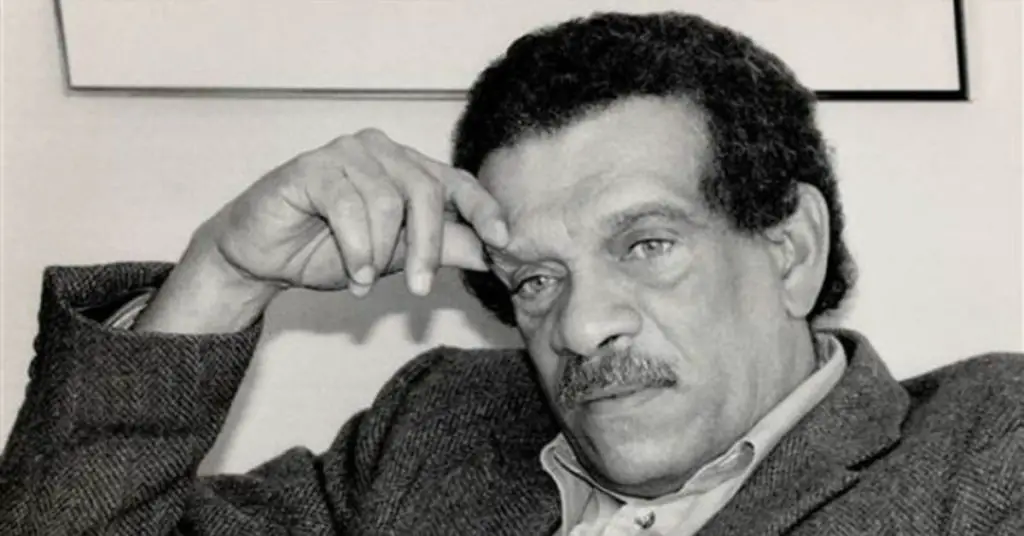
How did Derek Walcott use his success to affect the world around him?
Throughout his career, he used his platform and status to fight for social justice and human rights. He was a fierce advocate of decolonization in Caribbean countries, speaking out against oppressive systems imposed by former colonial powers.
He also spoke out strongly against war, poverty, racism, and political oppression all over the globe.
Walcott’s commitment to these causes went beyond mere words; he actively supported numerous charities dedicated to protecting human rights and promoting education in developing nations.
In addition, he worked with local organizations on initiatives such as providing medical care to underprivileged communities.
His support wasn’t limited just to financial aid – he often volunteered his time and creative vision too.
These projects were integral components of Walcott’s legacy that continue long after his death.
The next step is exploring how personal life and relationships shaped Derek Walcott’s life story.
Personal Life And Relationships
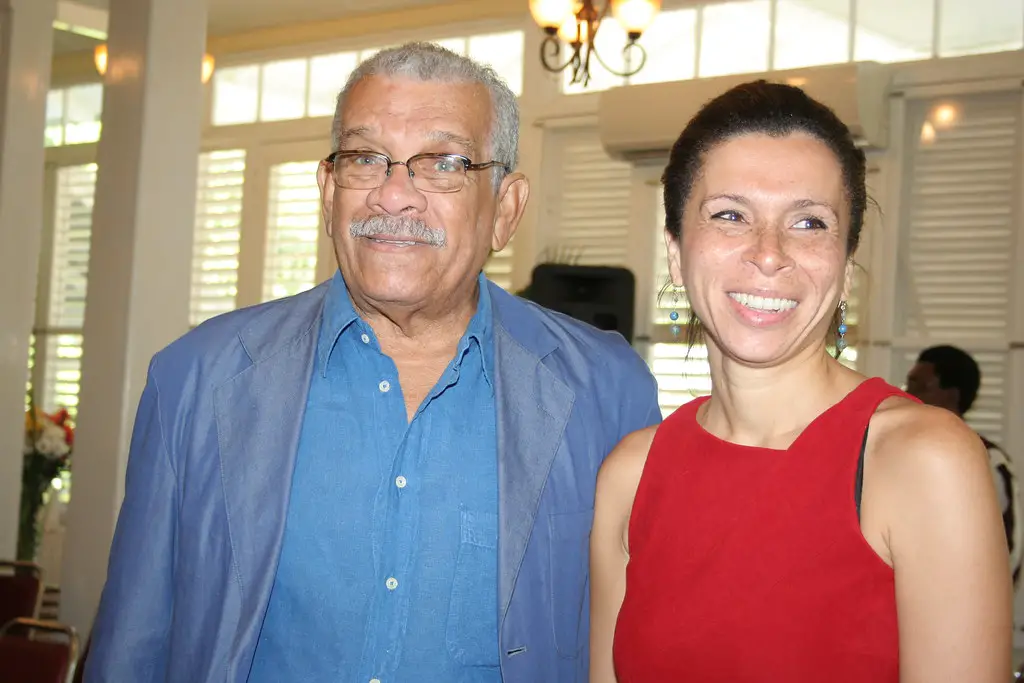
Derek Walcott was married twice, first to Faye Ziegler and then later to Norline Metivier.
He had two children with his second wife; a daughter, Elizabeth, and a son Nathan. Walcott’s personal relationships were often tumultuous due to his volatile temper, which led him into several conflicts both before and after he became famous for his writing.
Despite this, however, he remained close to many of his friends throughout his life, including fellow writers such as Seamus Heaney.
Walcott also had an incredibly strong bond with the island of Saint Lucia where he grew up and spent much of his time in later years.
Throughout his career he spoke out against colonialism and imperialism within the Caribbean region, advocating for indigenous rights in the area.
His work dealt heavily with themes of race that were inspired by his own experiences growing up in Saint Lucia during its colonial period.
Later Years And Retirement

In his later years, Derek Walcott achieved international recognition for his work and was honoured with a number of awards.
He received the Golden Wreath Award from Struga Poetry Evenings in 1996, and the Nobel Prize for Literature in 1992.
In 2000, he was awarded an honorary doctorate by University College London.
His works were also included on several prestigious lists throughout the world, including Time Magazine’s list of “The Best Works of Fiction” and The Guardian’s 100 Best Books of All Time.
Walcott retired from teaching in 2007 at Boston University, where he had been a professor since 1991.
After retiring, he continued to write poetry and be involved in Caribbean literature until his death in 2017.
He remained one of the most influential figures in Caribbean literature up until his passing, influencing countless writers who followed him both locally and internationally.
Legacy In Caribbean Literature
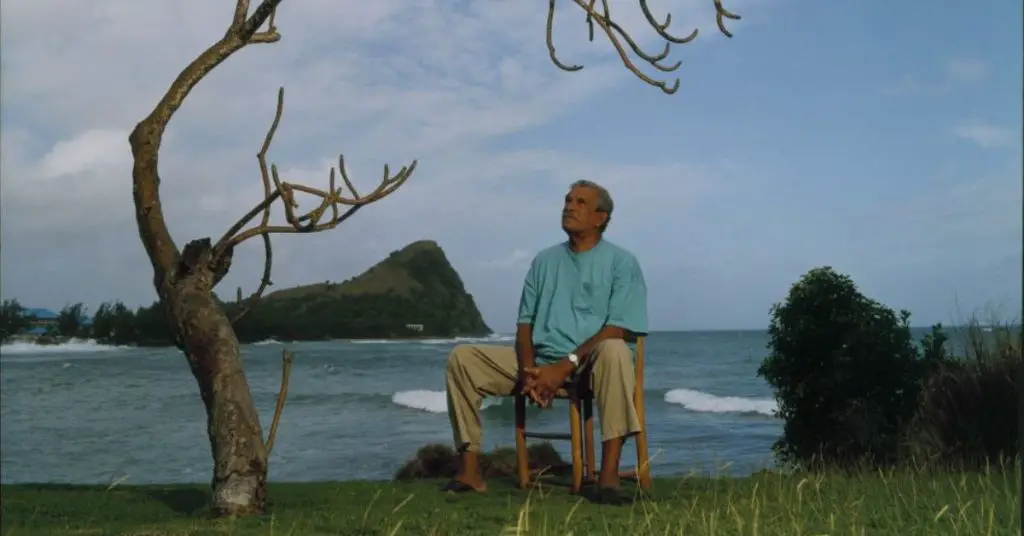
Derek Walcott’s influence on Caribbean literature is undeniable.
He was a pioneer in creating an independent literary landscape for the region and established himself as one of its most important authors.
His work inspired many other writers to follow in his footsteps, which has led to a flourishing Caribbean literary scene today.
From poetry and plays to novels, Derek Walcott left behind an impressive body of work that continues to impact people around the world.
His legacy also extends beyond the Caribbean and into global literature, with his works being translated into more than 20 languages over the years.
His award-winning play “Dream on Monkey Mountain” was staged in London, New York City, and Tokyo; while his epic poem Omeros made him known outside of the Caribbean for his unique style of storytelling.
By crafting stories about individuals from everyday life and mixing them with elements of mythology and folklore,
Derek Walcott has left a lasting imprint on both regional and international readerships alike. As he once said: “The real poet speaks not only of what he sees but what he feels.”
With this message, Derek Walcott’s indelible mark will live on in literature forevermore.
Moving forward, it is clear that Derek Walcott’s influence will continue to shape how we view Caribbean culture through literature for generations to come.
Influence On Global Literature
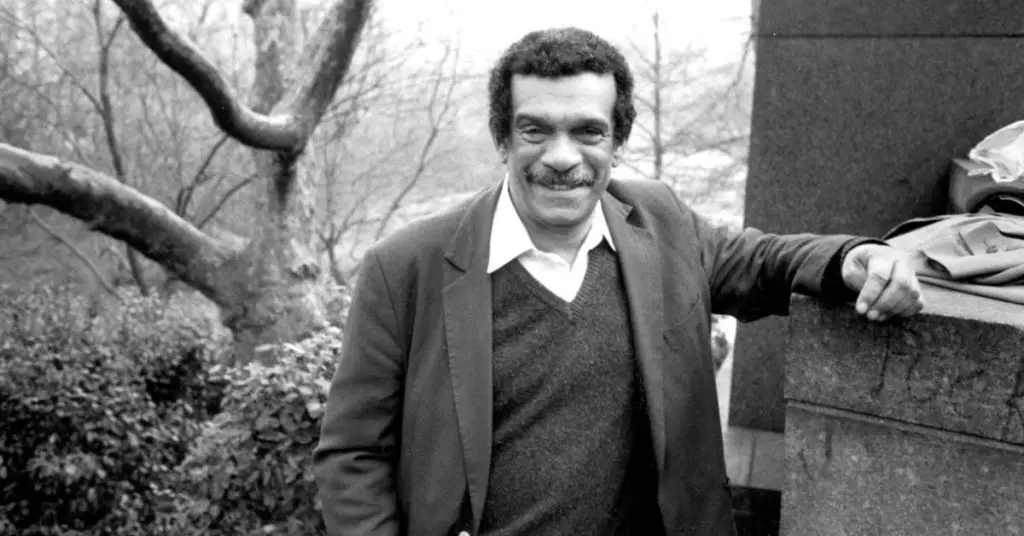
Walcott’s writing was a beacon of light, shining through the darkness and illuminating global literature.
His works were widely renowned for their meditations on colonialism, Caribbean identity, and the beauty of language itself.
He brought to life forgotten voices from islands that had been lost in time and space.
Through his work, he created new ways to communicate with each other, while also transcending cultural boundaries.
Walcott’s influence can be seen around the world today in various forms – his words have been translated into more than 30 languages and published in over 40 countries.
His plays have been performed on stages all across Europe, North America, and Africa.
The impact of his writings has extended beyond just literature; they have inspired many visual artists who use his imagery as creative fodder for their own pieces.
As well, musicians often reference Walcott’s themes in their music – even Bob Dylan dedicated an entire song to him!
This legacy will continue to live on for generations to come as people around the globe explore Derek Walcott’s literary genius.
Tributes To Walcott’s Memory

The writer and Nobel Laureate Derek Walcott passed away in 2017, leaving behind a legacy of award-winning works that have moved generations of readers.
In the wake of his death, tributes poured out from around the world honouring him for his life’s work as well as his contributions to Caribbean culture.
The Royal Society of Literature paid tribute by noting how Walcott’s “genius was rooted firmly in the West Indies” while also being part of an international conversation about literature and art.
Fellow writers like poet Kwame Dawes celebrated Walcott’s life with words such as “Derek’s voice will continue to live on through his vast body of work.”
Additionally, St Lucia has honoured their native son by declaring March 17th ‘Derek Walcott Day’ each year since 2018.
From heartfelt eulogies to posthumous accolades, it is clear that Derek Walcott left a lasting impression on both literary circles and those who knew him personally.
Posthumous Publications
Derek Walcott left behind a legacy of literary works, even after his passing in 2017.
Like the rays of sunshine that stream through the window on a summer day, so did Derek’s work continued to shine and expand its reach beyond what he had accomplished while alive.
His posthumous publications included collections such as The Prodigal (2018), White Egrets (2010) and Poems: 1962-2012 (2017).
He also published several books with Caribbean themes such as The Star Apple Kingdom (1979) and Omeros (1990).
Walcott’s body of work has been held in high esteem by many critics.
The immense reach and appreciation for his work continued well past his death, making him an influential figure in contemporary literature.
In fact, some of his most acclaimed works were written posthumously. Thus it was no surprise when news broke out about controversies surrounding his estate shortly after his passing.
Controversies Surrounding His Estate

After his passing, controversy arose surrounding the distribution of Walcott’s estate.
His will was reportedly tampered with and revised without his expressed permission before being signed.
Some family members contested the will in court, claiming that their own interests had not been taken into account.
Despite these issues, a settlement was eventually reached between all involved parties, allowing for the transfer of assets to be completed according to Derek Walcott’s wishes.
The legacy left by Walcott continues to have an impact on future generations today, both through its literary works as well as its cultural implications.
As one of the world’s most renowned poets and playwrights, he has set a lasting example of creative excellence which many continue to try and emulate.
Impact Of His Work On Future Generations

Derek Walcott’s contributions to world literature have been immense. On one level, he succeeded in capturing the beauty of Caribbean culture and history in a way that had never been done before.
His poems are filled with imagery and symbolism that bring life to stories about love, loss, injustice, and redemption.
But on another level, Walcott’s work is still relevant today because of its powerful impact on future generations.
Walcott’s influence can be seen in the works of many contemporary authors who draw upon his themes while exploring their own unique perspectives on race and identity.
These writers often cite him as an inspiration and source of comfort during times when they feel marginalized or excluded from mainstream society.
This demonstrates how Walcott’s legacy will live on long after his death: by continuing to provide solace to those seeking refuge through his artistry.
It is clear that Derek Walcott has left behind a lasting impression on global literature which will continue to inspire readers for years to come.
Final Thoughts on Derek Walcott
Derek Walcott’s life and career were truly a testament to greatness. His work is sure to live on, inspiring generations of writers for centuries to come.
He was an icon who achieved more than anyone could have ever imagined – a veritable titan in the world of literature.
His poetry was so powerful it could move mountains, and his plays could touch your soul with each word he spoke.
The sheer depth of emotion one can feel while reading or listening to any of his works is simply remarkable; they are as timeless as the stars that light up our night sky.
It might be an understatement to say Derek Walcott was one-of-a-kind; he was without doubt a giant among men whose legacy will never be forgotten.
While we mourn his passing, let us remember him by celebrating all that he accomplished during his time here on Earth – far beyond what any Nobel Prize could ever hope to achieve!
